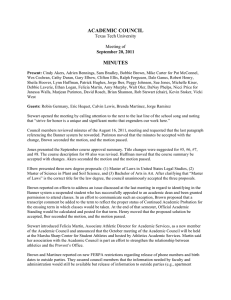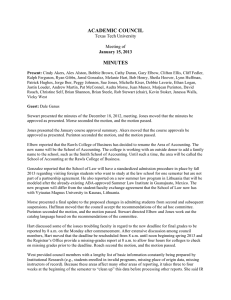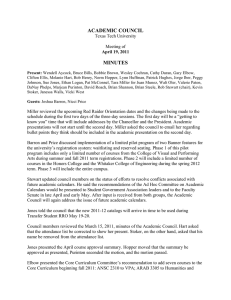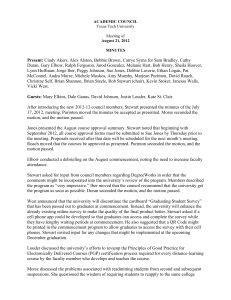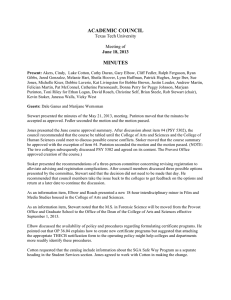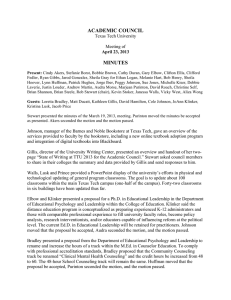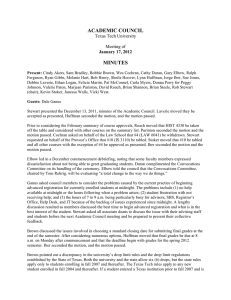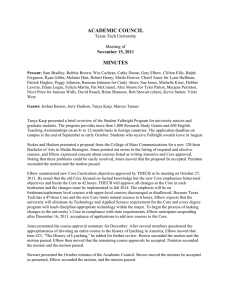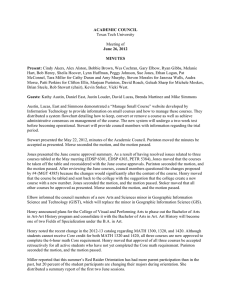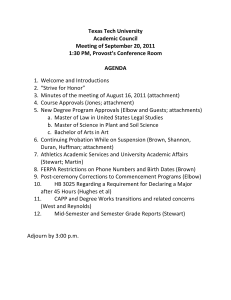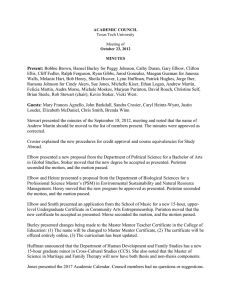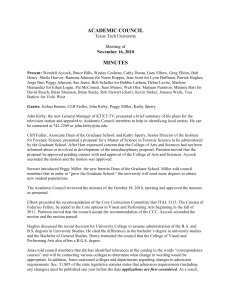ACADEMIC COUNCIL July 17, 2012 MINUTES Present:
advertisement
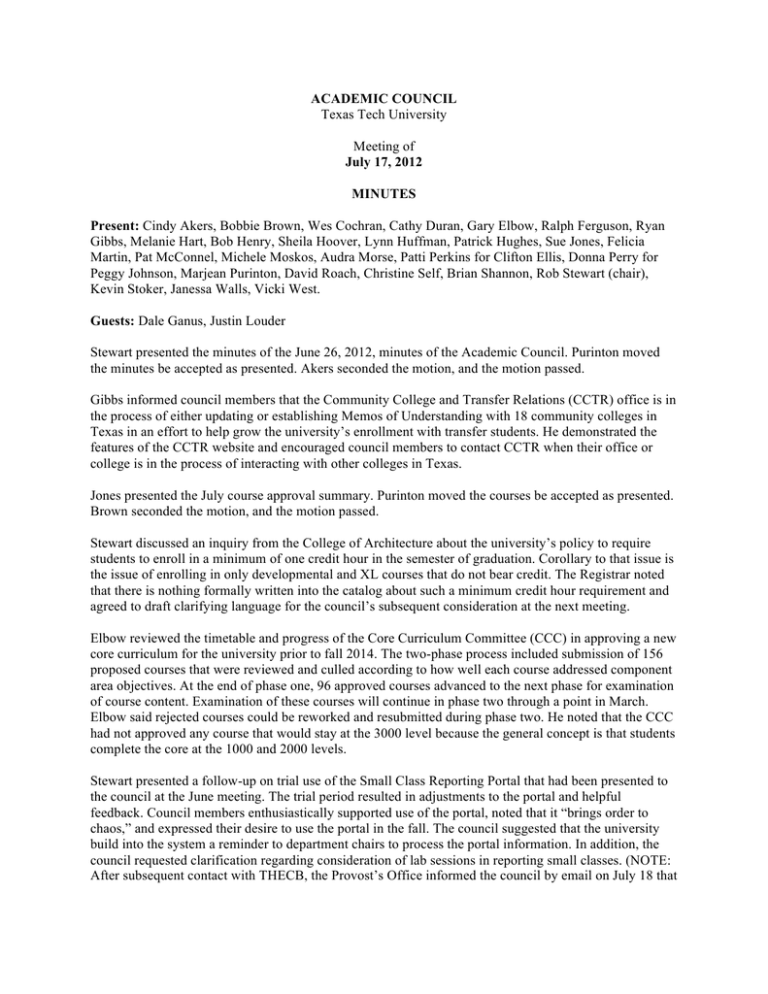
ACADEMIC COUNCIL Texas Tech University Meeting of July 17, 2012 MINUTES Present: Cindy Akers, Bobbie Brown, Wes Cochran, Cathy Duran, Gary Elbow, Ralph Ferguson, Ryan Gibbs, Melanie Hart, Bob Henry, Sheila Hoover, Lynn Huffman, Patrick Hughes, Sue Jones, Felicia Martin, Pat McConnel, Michele Moskos, Audra Morse, Patti Perkins for Clifton Ellis, Donna Perry for Peggy Johnson, Marjean Purinton, David Roach, Christine Self, Brian Shannon, Rob Stewart (chair), Kevin Stoker, Janessa Walls, Vicki West. Guests: Dale Ganus, Justin Louder Stewart presented the minutes of the June 26, 2012, minutes of the Academic Council. Purinton moved the minutes be accepted as presented. Akers seconded the motion, and the motion passed. Gibbs informed council members that the Community College and Transfer Relations (CCTR) office is in the process of either updating or establishing Memos of Understanding with 18 community colleges in Texas in an effort to help grow the university’s enrollment with transfer students. He demonstrated the features of the CCTR website and encouraged council members to contact CCTR when their office or college is in the process of interacting with other colleges in Texas. Jones presented the July course approval summary. Purinton moved the courses be accepted as presented. Brown seconded the motion, and the motion passed. Stewart discussed an inquiry from the College of Architecture about the university’s policy to require students to enroll in a minimum of one credit hour in the semester of graduation. Corollary to that issue is the issue of enrolling in only developmental and XL courses that do not bear credit. The Registrar noted that there is nothing formally written into the catalog about such a minimum credit hour requirement and agreed to draft clarifying language for the council’s subsequent consideration at the next meeting. Elbow reviewed the timetable and progress of the Core Curriculum Committee (CCC) in approving a new core curriculum for the university prior to fall 2014. The two-phase process included submission of 156 proposed courses that were reviewed and culled according to how well each course addressed component area objectives. At the end of phase one, 96 approved courses advanced to the next phase for examination of course content. Examination of these courses will continue in phase two through a point in March. Elbow said rejected courses could be reworked and resubmitted during phase two. He noted that the CCC had not approved any course that would stay at the 3000 level because the general concept is that students complete the core at the 1000 and 2000 levels. Stewart presented a follow-up on trial use of the Small Class Reporting Portal that had been presented to the council at the June meeting. The trial period resulted in adjustments to the portal and helpful feedback. Council members enthusiastically supported use of the portal, noted that it “brings order to chaos,” and expressed their desire to use the portal in the fall. The council suggested that the university build into the system a reminder to department chairs to process the portal information. In addition, the council requested clarification regarding consideration of lab sessions in reporting small classes. (NOTE: After subsequent contact with THECB, the Provost’s Office informed the council by email on July 18 that “we will keep credit-bearing lab sections as part of the list of small classes and require justifications for keeping them” if the sections are small.) Duran commented on the success of the university’s Red Raider Orientation (RRO), noting that all the hard work has helped and RRO is making a difference to students and their families. 2
